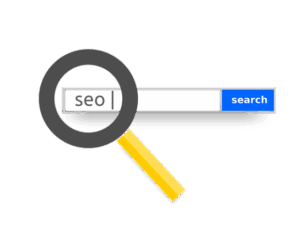PPC marketing, a versatile digital strategy, empowers businesses to precisely target audiences across search engines and websites by bidding on relevant keywords. This cost-effective approach drives traffic, enhances visibility, and provides valuable consumer insights for Conversion Rate Optimization (CRO). By leveraging data and analytics, PPC maximizes budgets, boosts lead conversion, and offers budget control with daily spending limits. It's a key component of successful digital campaigns, especially in local and full-service digital marketing, where it diversifies online presence and delivers tangible results. Measuring KPIs like CTRs, Conversion Rates, and CPC ensures campaign effectiveness and guides future strategies. With AI advancements and mobile marketing gaining prominence, PPC's future promises enhanced targeting, improved ROI, and data-driven decisions for optimal performance in the evolving digital landscape.
Internet marketing, a dynamic and ever-evolving field, has transformed how businesses connect with their audiences. At its core lies PPC (Pay-Per-Click) marketing, a powerful tool that allows for precise targeting and measurable results. This article delves into the intricacies of PPC marketing, exploring strategies, benefits, and future trends. We’ll uncover how it enables businesses of all sizes to reach ideal customers, enhance brand visibility, and drive sales effectively. By understanding PPC’s potential, marketers can unlock a cost-effective path to digital success.
- Understanding PPC Marketing: A Cornerstone of Online Advertising
- Targeted Reach: How PPC Helps Find Your Ideal Audience
- Cost-Effective Strategies: Maximizing ROI with PPC Campaigns
- Diversifying Digital Presence: Integrating PPC with Other Marketing Techniques
- Measuring Success: Key Performance Indicators in PPC Marketing
- Future Trends: Evolution of PPC Marketing in the Digital Landscape
Understanding PPC Marketing: A Cornerstone of Online Advertising

Pay-per-click (PPC) marketing is a powerful digital advertising strategy that forms the backbone of many successful online businesses and digital marketing campaigns. At its core, PPC involves placing targeted ads on search engine results pages or within content on various websites, with advertisers paying a fee each time a user clicks on their ad. This cost-effective approach allows marketers to reach precise audiences who are actively searching for products or services related to their business.
By implementing well-optimized PPC campaigns, businesses can effectively drive traffic to their websites and improve their online visibility. Moreover, these campaigns offer valuable insights into consumer behavior and preferences, enabling marketers to enhance their Conversion Rate Optimization strategies. For instance, by analyzing clicks from Email Marketing newsletters or redirecting users to specific landing pages based on their search queries, businesses can refine their messaging and calls-to-action, ultimately leading to more conversions.
Targeted Reach: How PPC Helps Find Your Ideal Audience

In today’s digital era, targeted reach is a cornerstone of successful online marketing. One of the most powerful tools in an advertiser’s arsenal is Pay-Per-Click (PPC) marketing. PPC allows businesses to precisely target their ideal audience across various digital channels, ensuring that marketing efforts are not just seen but also effectively engage potential customers. By bidding on keywords relevant to their products or services, businesses can appear at the top of search engine results pages and social media feeds, directly reaching users who are actively searching for what they offer.
This targeted digital advertising approach goes beyond demographics; it leverages sophisticated algorithms to match ads with users based on real-time behaviors, interests, and even location. Whether focusing on desktop or mobile marketing solutions, custom digital marketing strategies built around PPC can drive significant results. By carefully selecting keywords and optimizing ad campaigns, businesses can maximize their budget, ensuring that each click translates into a meaningful connection with a potential customer—a key aspect of converting leads into sales in the online marketplace.
Cost-Effective Strategies: Maximizing ROI with PPC Campaigns

Internet marketing offers a multitude of cost-effective strategies for businesses and individuals to maximize their return on investment (ROI). One such powerful tool is Pay-Per-Click (PPC) marketing, which allows for precise targeting of digital advertising campaigns. By bidding on relevant keywords, advertisers can ensure their ads are displayed to the most suitable audience, driving highly qualified leads and sales. This targeted digital advertising approach is a cornerstone of professional digital marketing services, enabling businesses to reach their ideal customers at a fraction of the cost associated with traditional advertising methods.
PPC campaigns provide real-time data and analytics, offering valuable insights into consumer behavior and campaign performance. Marketers can quickly optimize their strategies based on click-through rates, conversion rates, and other key metrics. This agility ensures that digital marketing efforts remain effective and aligned with business goals. Moreover, PPC marketing allows for a high degree of control over the budget, enabling businesses to set daily spending limits and only pay when a desired action is taken, making it an attractive option for those seeking cost-efficient methods to promote their products or services online.
Diversifying Digital Presence: Integrating PPC with Other Marketing Techniques

In today’s digital landscape, diversifying your online presence is paramount for success. Beyond Search Engine Optimization (SEO) and social media marketing, integrating PPC marketing (pay-per-click) offers a powerful strategy to reach and engage specific audiences. By bidding on keywords relevant to their products or services, businesses can ensure their ads appear at the top of search results, driving higher click-through rates and targeted traffic.
This approach complements local digital marketing efforts by allowing for precise targeting based on location, demographics, and interests. For instance, a local bakery can use targeted digital advertising to attract nearby customers looking for fresh pastries. Moreover, full-service digital marketing agencies excel at combining PPC with other techniques, creating comprehensive strategies that maximize ROI and deliver tangible results.
Measuring Success: Key Performance Indicators in PPC Marketing

Measuring success is a critical aspect of PPC marketing, allowing businesses to understand the effectiveness of their online campaigns. Key Performance Indicators (KPIs) provide insights into the return on investment (ROI) and help optimize future strategies. Click-through rates (CTRs) are a primary metric, indicating the percentage of users who click on an ad after viewing it. A higher CTR suggests relevant and compelling ads, leading to more engaged audiences. Conversion rates are equally vital, representing the proportion of visitors who complete a desired action, such as making a purchase or subscribing to a service.
For comprehensive analysis, businesses should track cost-per-click (CPC), which measures the average amount paid for each click on an ad. Lower CPC indicates more efficient campaigns. Additionally, monitoring click volume and ad position can provide valuable data for refining targeting and bid strategies. By utilizing these KPIs, marketers can refine their PPC marketing efforts, ensuring that custom digital marketing strategies align with broader digital branding objectives.
Future Trends: Evolution of PPC Marketing in the Digital Landscape

The future of PPC marketing is closely tied to the ever-evolving digital landscape. As technology advances, we can expect to see a more personalized and data-driven approach in pay-per-click (PPC) advertising. Artificial intelligence (AI) will play a significant role, enabling advertisers to target specific audiences with greater precision. This evolution promises to enhance campaign effectiveness while optimizing cost efficiency.
Mobile Marketing Solutions are set to gain prominence, given the increasing mobile web usage. Marketers will need to adapt their strategies to cater to this shift, focusing on creating mobile-friendly content and leveraging location-based targeting for more relevant ad delivery. Additionally, Web Analytics and Digital Marketing techniques will become even more sophisticated, allowing for detailed audience segmentation and real-time performance tracking, thereby facilitating data-backed decision-making in PPC campaigns. The professional digital marketing landscape is poised for continuous transformation, with these trends setting the stage for more innovative and successful online advertising strategies.
